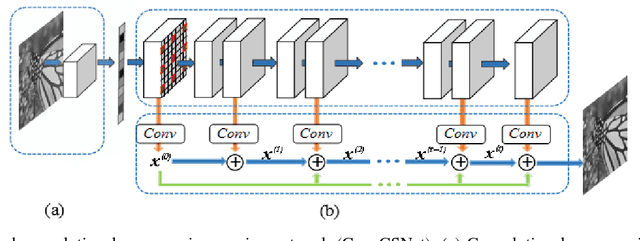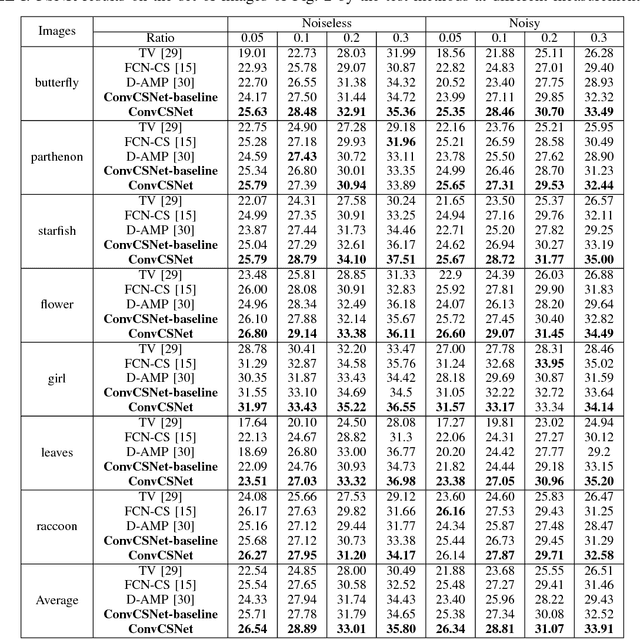ConvCSNet: A Convolutional Compressive Sensing Framework Based on Deep Learning
Paper and Code
Jan 31, 2018



Compressive sensing (CS), aiming to reconstruct an image/signal from a small set of random measurements has attracted considerable attentions in recent years. Due to the high dimensionality of images, previous CS methods mainly work on image blocks to avoid the huge requirements of memory and computation, i.e., image blocks are measured with Gaussian random matrices, and the whole images are recovered from the reconstructed image blocks. Though efficient, such methods suffer from serious blocking artifacts. In this paper, we propose a convolutional CS framework that senses the whole image using a set of convolutional filters. Instead of reconstructing individual blocks, the whole image is reconstructed from the linear convolutional measurements. Specifically, the convolutional CS is implemented based on a convolutional neural network (CNN), which performs both the convolutional CS and nonlinear reconstruction. Through end-to-end training, the sensing filters and the reconstruction network can be jointly optimized. To facilitate the design of the CS reconstruction network, a novel two-branch CNN inspired from a sparsity-based CS reconstruction model is developed. Experimental results show that the proposed method substantially outperforms previous state-of-the-art CS methods in term of both PSNR and visual quality.
 Add to Chrome
Add to Chrome Add to Firefox
Add to Firefox Add to Edge
Add to Edge